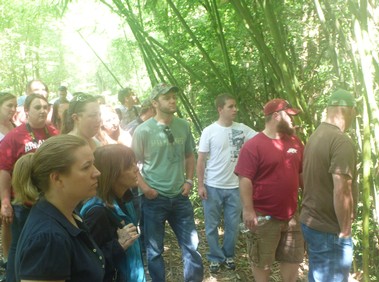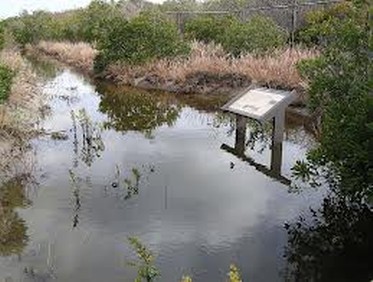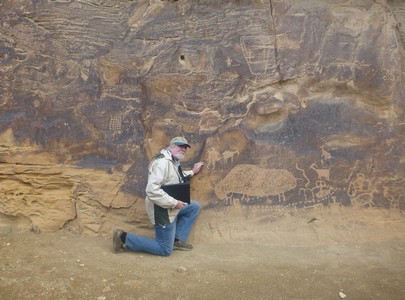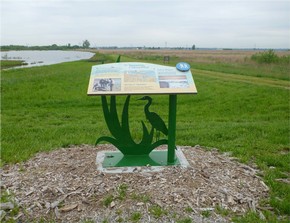John Veverka & Associates
Main menu:
- Home Page
- Our Range of Services
- Interpretive Coaching
- Interpretive Planning
- Interpretive Plan Outline
- Interpretive Training
- John Veverka Resume
- NEW Advanced Interp. Text Book
- InterpNEWS
- Library
- JVA NEWS, Courses and Updates
- Certificates
- Planning/Design of Interpretive Panels
- Interpretive Writing
- Interpretive Writing Course
- Interpretive Trails Course
- Interpretive Panels Course
- Introduction to Heritage Interpretation Course
- Interpretive Planning & Design of Marketing Brochures Course
- Training for Interp. Trainers
- Interpretive Exhibits Course
- Interpretive Master Planning Course
- Interpretive Planning for Scenic Byways.
- Critiquing and Coaching Interpretive Staff
- Advanced Interpretive Planning
- Interpretive Training Center Course Catalogue
- Interp. for International Visitors course.
- Interpretive Exhibits Evaluation
- Interp. Center Feasibility Analysis Course.
- Interp. for Commercial Tour Providers
- Interpretive Researchers Guide for Visitor Studies
- Interp. Planning for Historic Homes
- Heritage Interpretation Training Center
- Interpretive Planning for Botanical Gardens
- An introduction to planning and presenting live interpretive programs and tours for Museum/Heritage Site Docents and Volunteers.
- Developing Marketing Plans for Heritage & Tourism Sites and Attractions
- Interpretation Book Store
- Heritage Interpretation Resource Center
- Interpretive Planning for Historic Farms
- Developing Successful Partnerships
- Developing Interpretive Outreach Programs
- Community Interpretation Planning
- Interpreting Gravestones and Historic Cemeteries
- Using Interpretation to Accomplish Management Objectives.
- An Interpreters Guide for Survival Economics.
- Innovative Strategies for Interpretive Media and Services Planning.
- A Curators Guide for Developing Gallery Tours.
- Advanced Interpretive Writing - Technical Publications
- Advanced Interpretive Services for Managers, Supervisors, Team Leaders and Sr. Staff.
- Advanced Interpretation for Chiefs of Interp. - Interpretive Managers - Regional Interp. Specialists
- Interpreting Critical Issues.
- Developing Commercial Interpretation for Resorts, Cruise Ships, Campgrounds and Tourism Attractions.
- Planning and developing a new commercial tour guiding business.
- Interpretive Evaluation, Visitor Studies and Site Assessment Center
- The Center for Interpretive Planning Advancement & Excellence.
- Developing Requests for Proposals (RFPs)
- Planning and Facilitating Focus Workshops
- Planning for Interpretive Experiences
- 40 Years a Heritage Interpreter
- Interpretive Techniques - The Rest of the Story Course
- Certified Professional Interpretive Planner Certificate
- Certified Professional Interpretive Program
- Certified Professional Interpretive Writer certificate program.
- Visitor motives for attending interpretive programs.
- Exhibit Rehab Course
- Developing Training Workbooks & Manuals
- Planning for Railroad Museums and Sites.
- Climate Change Interpretation Course.
- When there's nothing left but the story - interp. storytelling.
- Interpreting Legends Myths and Fables
- InterpSHARE - Seminars 2022
- Interpreting Invasive Species
- Interpretiing Edible Insects
- Interpretaive Planning for Climate Change
- HITC Climate Crisis Resource Center
- PUP Members Only
- Starting a new Interp Consulting Business
- Panels 4 Week Course
- Interpretive Writing - 4 Week Course
- Marketing - 4 Week Course
- Intro to Interpretation - 4 Week Course
- Interp Climate Change - 4 Week Course
- Exhibit Rehab 4-Week Course
- Level 1
- Johns Interpreters Blog
- John Interpreters Blog 2
Interpretive Trails Course

Planning Interpretive Trails e-LIVE Course - 13 Units - 2.5 CEU Credits


Are you ready for e-LIVE interpretive training?
JVA is pleased to announce the development of the second of several e-Live interpretive training courses offered by Professor John Veverka. We feel that any interpretive training experience should be taught by professional Certified Interpretive Trainers/Planners with college level degrees in heritage interpretation (ideally at the M.S. or Ph.D. levels) and/or with years of actual interpretive experience in the course topics being offered, to deliver college level interpretive training courses based on real world experience.
Who is this course for?
This course is for any individual or organization involved in interpretive planning for self-guiding interpretive trails including: landscape architects, park planners, interpretive planners, recreation specialists, interpretive specialists, environmental education specialists or others responsible for the planning, design and media development for interpretive trails. This course will be especially valuable for staff charge with interpretive trail planning who have no formal advanced training (university level courses) specifically in interpretive communications.
In addition this course is design to provide one-on-one assistance for any participant actually involved in planning or upgrading an interpretive trail.
For this course, interpretive self-guiding trails can include:
* Walking trails in parks, forests, natural areas, nature centers, etc.
* Self-guiding driving tours for heritage regions and scenic byways.
* Heritage area - historic district and historic community self-guding walking tour routes.
* Historic site/village self-guiding walking tours.
We are very flexible and can provide individualized training materials in these topic areas and have actual experience in developing interpretive self-guiding media for each of these resources.
Course Goals:
Participants will:
- Understand what makes an interpretive trail "interpretive".
- Learn that the "trail" can be a walking trail, auto tour trail, historic town walking tour trail.
- Gain an understanding of interpretive trail planning elements and trail standards.
- Again an understanding to the total interpretive planning process.
- Understand how visitors using interpretive trails learn and remember during a self-guiding trail
experience.
- Learn of the current medium and materials available for outdoor interpretive panels.
- Learn of design standards for related interpretive media.
- Feel confident in planning and designing successful and safe interpretive trail experiences.
Your final project for this course will be:
Develop an interpretive trail (or driving tour) master plan (if you are working on a actual trail project) or interpretive trail plan outline/check-list if you will be working on a trail plan in the future. The course is set up for you to develop your interpretive trail plan step-by-step, from each unit in the course. Final projects are flexible depending on your specific needs.
Note: This project could also be for the development of self-guiding auto tours and driving tours for scenic byways as the same planning/design principles would apply.
About the Instructor: Prof. John Veverka
- B.S and M.S in Heritage Interpretation - The Ohio State University
- Ph.D. program in Interpretation at Michigan State University.
- Adjunct Professor Heritage Interpretation (summer heritage tourism institutes) North
Carolina State University, New York State University.
- NAI Certified Interpretive Planner and Trainer
- NAI Fellow
- Certified Professional Heritage Interpreter (Canada).
- Author of several interpretive planning/training college text books.
- Publisher of InterpNEWS - the International Heritage Interpretation e-Magazine.
- 40 years of interpretive planning, training and writing experience.
How will e-LIVE work? Our e-LIVE courses are limited to 10 participants at one time, to allow for maximum interaction with the course instructor. Once one participant completes the course another participant can be added.
- You'll be given course content to read and interact with for each unit.
- JVA will provide you with reading, text book and articles as part of the course.
- You'll be given a writing assignment for each unit which you will send to John for review, comments and writing coaching. You'll be able to talk with John about each assignment via SKYPE, or by e-mail or phone. Thus the e-LIVE opportunity. John will be your instructor and writing coach who you can talk with at any time about your assignments.
- When you've completed each course unit you'll be sent the next unit for the course. Again, you'll be given writing assignments for that unit to submit to John for review, comments and writing coaching.
- When you've completed the Units you will be awarded a certificate of completion and 2.5 CEU (Continuing Education Unit) credits.
Additionally, you can work on writing assignment for actual projects you may be working on - self-guiding trails or trail re-development, developing SGT products such as panels, developing self-guiding driving tours for scenic byways, etc. That's the benefit of e-LIVE - we are flexible in designing the course to meet your real-world needs.
The estimated completion time of the course is 25 hours - and you can work at your own pace. Start anytime, finish anytime.
Part of your course materials will be an e-book copy of John's newest book - the Interpretive Trails Book.


What are the units?
Unit One - What is an "interpretive" trail anyway?
- Review of Tilden's Interpretive Principles
- How to use Tilden's principles in interpretive trail planning.
Unit Two - General Trail Design Options/Considerations
Unit Three - Trail tread surfaces (what you will be walking on).
Unit Four - Trail Grade Standards (thte rise and fall of the the trail surface).
Unit Five - General trail design standards.
Unit 6 - Advantages and disadvantage of self-guiding trails.
Unit Seven - Interpretive Trail visitor considerations.
* Learning concepts and principles.
* Maslow's hierarchy of needs.
Unit 8 - Types of Interpretive Trails.
1. The leaflet and marker trail.
2. The sign-in-place trail.
3. The Audio Trail
4. The video trail (via iPhone/smart phone).
5. Handicap Accessible Trails
6. Trail media selection matrix.
Unit Nine - Planning/Design of the Interpretive Trail Support Media
* Developing interpretive trail head signs.
* Interpretive Panels
* Interpretive trail guides (printed, audio, smart phone).
Unit Ten - Interpretive Panel/sign mediums/materials (pros and cons).
Unit Eleven - Planning and design standards for interpretive trail media.
* Interpretive graphic standards for interpretive panels.
Unit Twelve - Putting it all together - Developing the Interpretive Trail Plan.
1. Trail resource and story inventory and creating the interpretive theme.
2. Developing the interpretive trail objectives.
3. Interpretive media recommendations
4. Understanding the trail users and trail impacts by visitors.
5. Selecting the trail locations (for a new trail).
6. Implementation and operations (costs and implementation strategy).
7. Interpretive planning forms.
Unit 13 - Final project - your interpretive trail master plan (if you are working on a actual trail project) or interpretive trail panning outline/check-list if you will be working on a trail plan in the future.
This Course is now ready to "go live" . You'll be able to register for (and pay for) the course at at the bottom of this page, by PayPal or Credit Card. Cost for the 25 hours training with live interaction with the instructor is $200.00 USD.
If you're interested in this course send an e-mail to John at: jvainterp@aol.com. I will send you a simple registoration form (to help me keep track of everyone). You can then return to this web site page to pay for the course below:
Feel free to contact John if you have any questions at all.
Contact John at:
jvainterp@aol.com
www.interpretation.expert
SKYPE: jvainterp
You can pay for the course here: Note: if you are paying by paypal, when the forms comes up just delete my e-mail address in the form and enter your paypal sign in details. :)